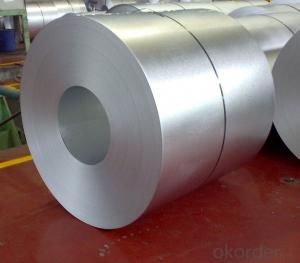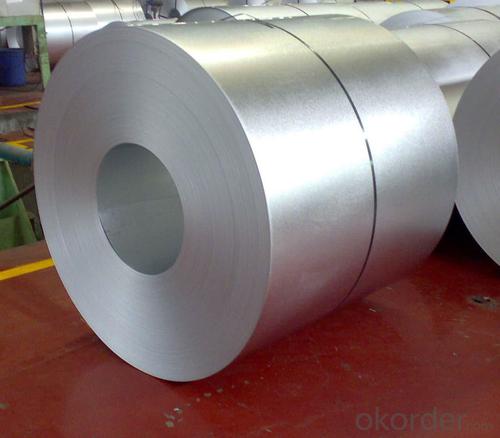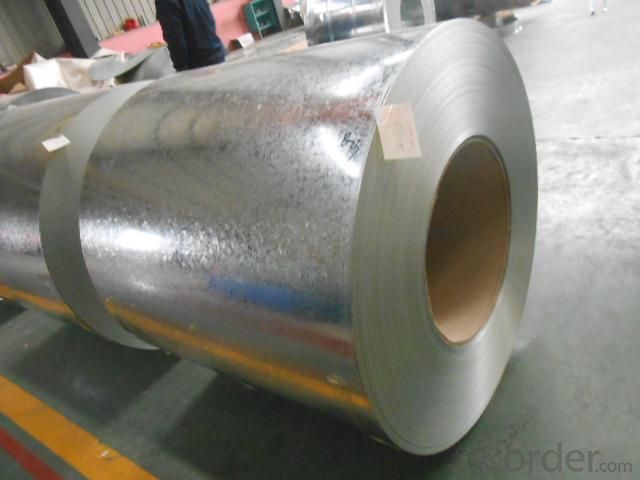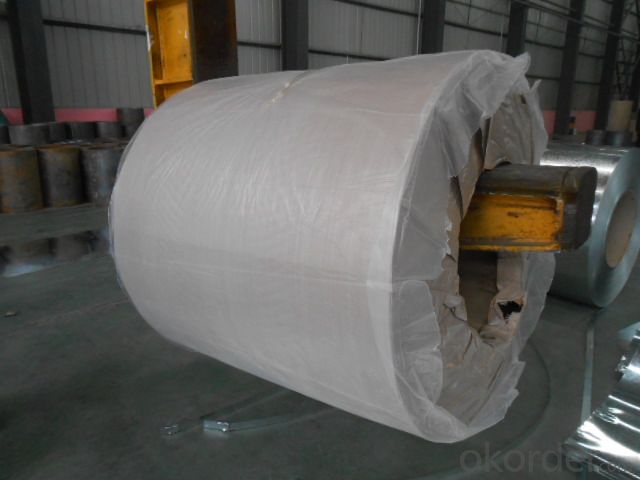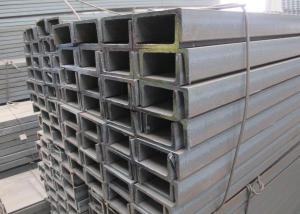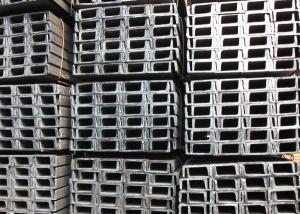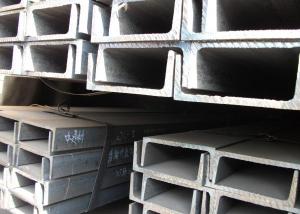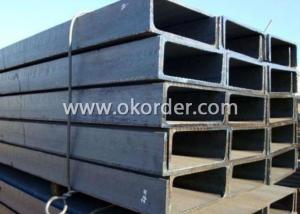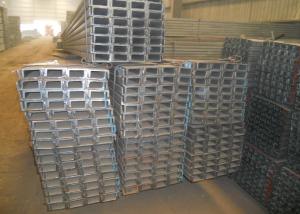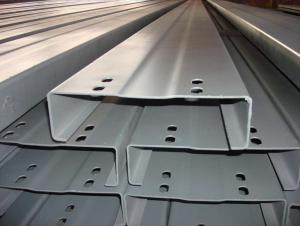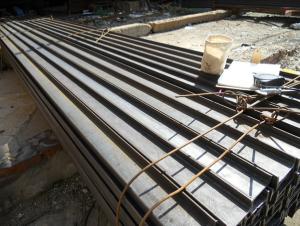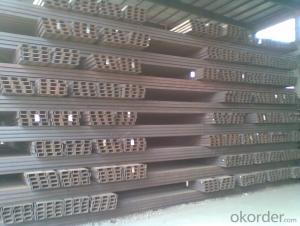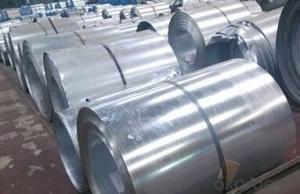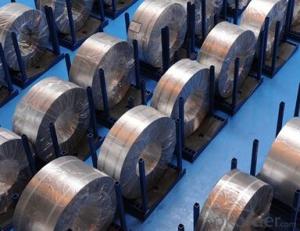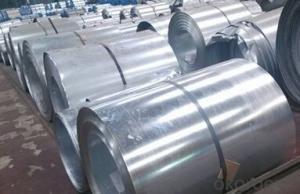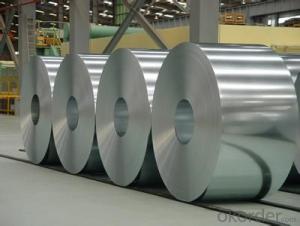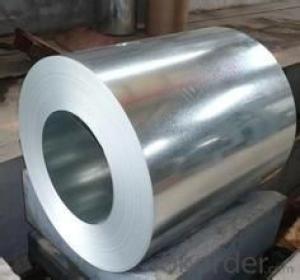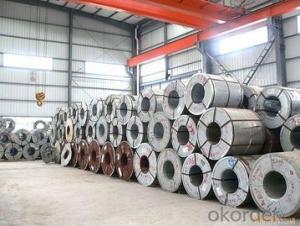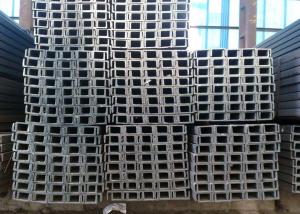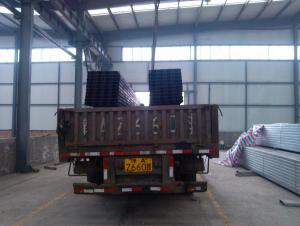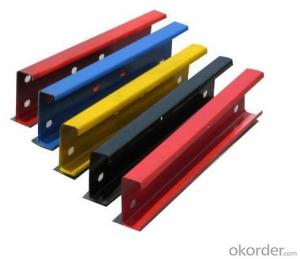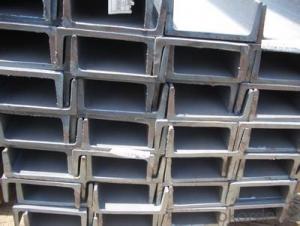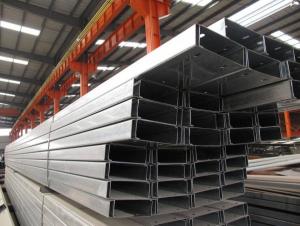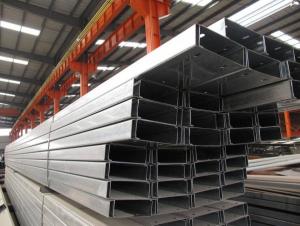Hot-dip Aluzinc Steel Building Roof Walls of Prime Quality and Best Price
- Loading Port:
- Shanghai
- Payment Terms:
- TT OR LC
- Min Order Qty:
- 50 m.t.
- Supply Capability:
- 10000 m.t./month
OKorder Service Pledge
OKorder Financial Service
You Might Also Like
1. Description of the Hot-dip Aluzinc Steel:
Hot-dip aluzinc steel structure is composed of aluminum-zinc alloy, consisting of 55% aluminum, 43% zinc and 2% at 600 ℃ silicon solidification temperature and composition, the entire structure is made of aluminum - iron - silicon - zinc, to form a dense quaternary crystals an alloy.
Hot-dip aluzinc steel has many excellent features: strong corrosion resistance, is three times the pure galvanized sheet; zinc surface with beautiful flowers, can be used as a building outside board.
Applications of hot-dip aluzinc steel:
1)Building: roof, walls, garages, soundproof walls, pipes and modular housing.
2)Automotive: muffler, exhaust pipes, wiper accessories, fuel tank, truck boxes, etc.
3)Appliances: refrigerator back, gas stove, air conditioners, microwave oven, LCD frame, 4)CRT-proof band, LED backlight, electrical cabinets, etc.
5)Farm: barn, sheds, silos, piping and other greenhouse.
6)Other: breaking heat insulation cover, heat exchangers, dryers, warm water, etc.
2.Main Features of the Hot-dip Aluzinc Steel:
• Excellent corrosion resistance
• High temperature oxidation resistance
• High hot reflectance
• Good manufacturability
•Beautiful appearance
•Surface coating
•Cost-effective
3.Hot-dip Aluzinc Steel Images
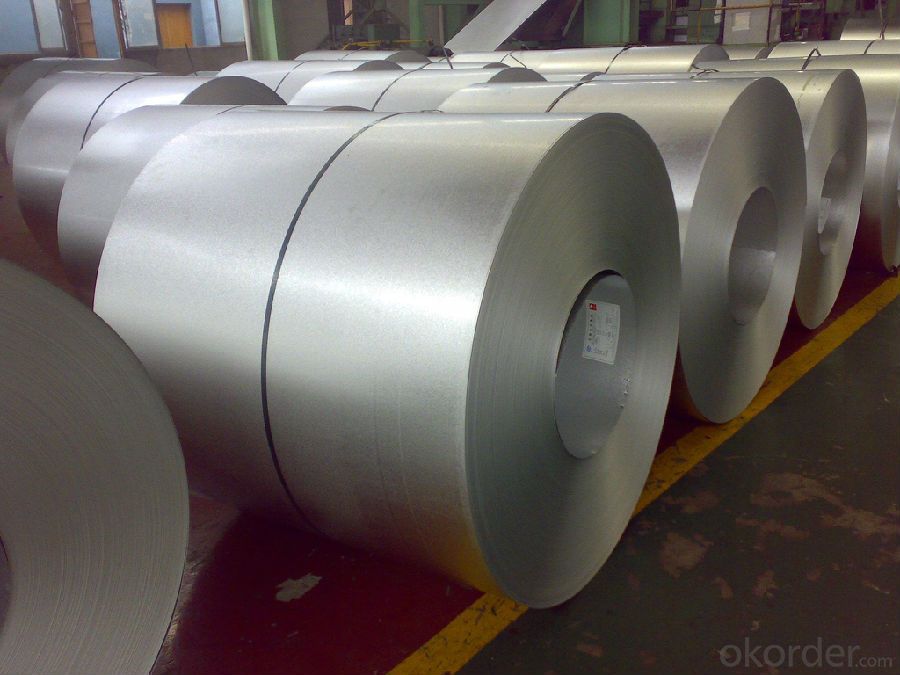
4.Hot-dip Aluzinc Steel Specification
AVAILABLE SPECIFICATION
HOT-DIP ALUZINC STEEL COILS | |
THICKNESS | 0.16mm-3.5mm |
WIDTH | 1250mm MAX |
COATING MASS | |
SPANGLE | Regular Spangle, Minimized Spangle, Zero Spangle |
SURFACE TREATMENT | Chromated / non-chromated, Oiled / non-oiled, Anti Finger Print |
COIL INNER DIAMETER | 508mm or 610mm |
HOT-DIP ALUZINC STEEL COILS | |||
COMMERCIAL QUALITY | ASTM A792M-06a | EN10327-2004 | JIS G 3321:2010 |
STRUCTURE STEEL | SS GRADE 230 SS GRADE 255 SS GRADE 275 SS GRADE 340 SS GRADE 550 | S250GD+AZ S280GD+AZ S550GD+AZ | SGLC440 SGLC490 SGLC570 |
5.FAQ of Hot-dip Aluzinc Steel
We have organized several common questions for our clients,may help you sincerely:
1.What advantages does your company have?
Cement : Annual capacity of 400 million tons, No. 1 in the world
Fiberglass: Annual capacity of 1 million tons fiberglass, No. 1 in the world.
Composite Materials — Carbon Fiber: Annual capacity of 10,000 tons PAN precursor and 4,000 tons carbon fiber, No. 1 in China
Composite Materials — Rotor Blade: Annual production capacity of 15,000 pieces, No.1 in China, Top3 worldwide
Glass: CNBM owns about 20 modern float glass product`ion lines, With annual capacity of 10 million square meters glass.
Light Weight Building Materials: Annual capacity of 1.65 billion square meters of gypsum board, No. 1 in the world.
Commercial concrete: Annual capacity of 0.35 billion cubic meters, No. 1 in the world.
Refractory Material: Annual capacity of 40,000 tons casting refractory, No.1 in the world.
2.What advantages do your products have?
Firstly, our base material is of high quality, Their performance is in smooth and flat surface,no edge wave ,good flexibility.
Secondly, high quality zinc ingoats, 97.5% zinc,1.5% silicon,1% others, the same zinc coating measured by metal coating thickness or by zinc weight
Thirdly, high precision: Tolerance strictly according to ASTM or JISG standard even more rigid.
We have full stes of testing equipment(for t best, cupule,chromatism,salt spray resistance, etc) and professional engineers.
3.Could you let me approach about your company in Dubai?
Located at Jebel Ali Free Zone in Dubai, CNBM Dubai Logistics Complex is adjacent to -Jebel Ali sea port-the largest port in UAE and Al Maktoum Airport-the largest airport in the world, which covers an area of 50,000 square meters, including an fully enclosed warehouse by 10,000 square meters, an open yard by 25000 square meters, and 13 standard unloading platform. CNBM Dubai Logistics Complex formally put into operation on August 1, 2013. Dubai Logistics Complex will commit itself to build the most professional and most influential building materials distribution center of China’s building materials industry in the UAE and throughout the Middle East and Africa.
- Q: Can steel channels be used in residential construction?
- Indeed, residential construction can incorporate steel channels. These steel channels, which possess a C-shaped cross-section, serve as structural supports made of steel. In the realm of building construction, they are widely utilized for the purpose of providing stability and support to diverse elements like walls, floors, and roofs. The utilization of steel channels in residential construction yields numerous benefits, including their exceptional strength-to-weight ratio, durability, and resistance to fire, rot, and pests. Moreover, they exhibit versatility and find usefulness in a range of applications such as framing, wall studs, and roof trusses. Furthermore, the adaptability of steel channels allows for easy customization and cutting to specific lengths, rendering them suitable for various building designs and requirements.
- Q: Can steel channels be used for column supports?
- Yes, steel channels can be used for column supports. Steel channels are often used in construction for their strength and durability. They provide structural support and stability for columns by distributing the load evenly. Steel channels can be welded or bolted together to create a strong and rigid framework for the columns. Additionally, steel channels can be easily customized and cut to the desired length, making them suitable for various column support applications.
- Q: Can steel channels be used for access platforms?
- Yes, steel channels can be used for access platforms. Steel channels are commonly used in the construction of access platforms due to their strength and durability. They provide a sturdy framework for supporting and securing the platform, ensuring the safety of workers while accessing elevated areas. The versatility of steel channels allows for customization and adaptation to different platform designs and requirements. Additionally, steel channels can be easily welded or bolted together, making them a convenient choice for constructing access platforms.
- Q: Can steel channels be used for equipment supports?
- Yes, steel channels can be used for equipment supports. They provide a strong and durable structure that can effectively support heavy equipment. Steel channels are commonly used in various industries for equipment mounting and support applications due to their strength, stability, and versatility.
- Q: Are steel channels suitable for underground applications?
- Indeed, steel channels prove to be an apt choice for underground applications. Their utilization in construction and engineering ventures is widespread owing to their exceptional robustness and durability. These channels possess the capability to endure immense weight and are impervious to corrosion, rendering them perfect for underground scenarios that may pose more demanding conditions. Furthermore, the ease with which steel channels can be manipulated and tailored to meet precise project specifications enables swift installation and ensures optimal structural stability underground.
- Q: What are the different shapes of steel channels available?
- Some of the different shapes of steel channels available include C channels, U channels, and MC channels.
- Q: What are the different types of bracing systems used with steel channels?
- There are several different types of bracing systems that can be used with steel channels, depending on the specific requirements and structural needs of a project. Some of these bracing systems include: 1. Cross bracing: This is the most common type of bracing used with steel channels. It involves placing diagonal members or cables between two or more steel channels in a crisscross pattern. Cross bracing helps to evenly distribute the load and provides stability to the structure. 2. K-bracing: This bracing system consists of diagonal members or cables that form a K-shape between steel channels. It is typically used in buildings with rectangular or square footprints, as it provides strong resistance to lateral forces. 3. Chevron bracing: Similar to K-bracing, chevron bracing also utilizes diagonal members or cables. However, in this system, the diagonal members form a V-shape or chevron pattern. Chevron bracing is often used in structures where space is limited, as it requires less material and allows for more open floor plans. 4. X-bracing: This bracing system involves placing diagonal members or cables in an X-shape between steel channels. It is commonly used in buildings with long spans or high wind loads, as it provides excellent resistance to lateral forces. 5. Portal bracing: Portal bracing is used in buildings with large openings, such as garages or warehouses. It involves adding diagonal members or cables to create a portal frame between steel channels. This type of bracing helps to distribute the load evenly and prevents deformation of the structure. 6. Eccentric bracing: Eccentric bracing is a specialized bracing system that allows for controlled yielding during seismic events. It involves placing diagonal members or cables off-center from the vertical axis of the steel channels, which helps to dissipate energy and reduces the impact of seismic forces. These are just a few examples of the different types of bracing systems that can be used with steel channels. The choice of bracing system will depend on factors such as the structural requirements, building codes, and the specific needs of the project.
- Q: What are the design considerations when using steel channels?
- There are several important factors to consider when using steel channels in design. To begin with, it is crucial to calculate the load-bearing capacity of the steel channel accurately. This involves determining the maximum load that the channel will endure and ensuring that the chosen channel size and shape can adequately support this load without any deformation or failure. Factors such as material strength, cross-sectional shape, and channel size must be taken into account. Another consideration of utmost importance is the structural stability of the steel channel. It is vital to evaluate whether the channel will face any external forces or vibrations and design it in a way that it can resist these forces without buckling or collapsing. This may involve incorporating reinforcements or bracing elements to enhance the channel's stability. Additionally, the environmental conditions in which the steel channel will be used should be considered. Factors like temperature fluctuations, exposure to corrosive substances, or the potential for moisture accumulation can affect the performance and durability of the steel channel. Appropriate measures, such as protective coatings or material selection, should be implemented to ensure the long-term functionality and integrity of the channel. Moreover, when designing with steel channels, it is essential to consider the ease of fabrication, installation, and maintenance. The selected channel size and shape should be compatible with standard manufacturing processes and construction techniques, allowing for efficient installation in the desired application. Additionally, potential future maintenance requirements, such as accessibility for repairs or modifications, should be taken into account. Lastly, the aesthetic and architectural requirements of the project should not be overlooked. Steel channels can serve as architectural elements, and their design should align with the overall aesthetic vision of the project. This may involve selecting a specific finish or surface treatment that complements the desired appearance. In summary, the design considerations for steel channels encompass load-bearing capacity, structural stability, environmental conditions, fabrication and installation feasibility, maintenance requirements, and aesthetic compatibility. By carefully addressing these factors, designers can ensure the successful implementation of steel channels in their projects.
- Q: What are the different methods of surface preparation for steel channels?
- There are several methods of surface preparation for steel channels, each serving a specific purpose and achieving different results. Some of the most commonly used methods include: 1. Abrasive blasting: This method involves using high-pressure air or water to propel abrasive particles onto the surface of the steel channels. It effectively removes rust, scale, and other contaminants, leaving a clean and roughened surface ready for further treatment or coating. 2. Chemical cleaning: This method involves using chemicals to remove surface contaminants and oxides from the steel channels. Acid pickling is a common chemical cleaning process, where the channels are immersed in an acid bath to dissolve rust and scale. Alkaline cleaning is another method that uses alkaline solutions to remove organic contaminants. 3. Mechanical cleaning: This method involves using mechanical tools such as wire brushes, scrapers, or sandpaper to physically remove contaminants from the surface of the steel channels. It is often used for smaller areas or localized cleaning requirements. 4. Power tool cleaning: This method involves using power tools such as grinders, sanders, or wire brushes to mechanically clean the surface of the steel channels. It is effective for removing heavy rust, mill scale, and coatings. 5. Solvent cleaning: This method involves using solvents to dissolve and remove contaminants from the surface of the steel channels. It is typically used for light cleaning and degreasing purposes. 6. Water jetting: This method involves using high-pressure water jets to clean the surface of the steel channels. It can effectively remove loose rust, paint, and other debris. It is important to select the appropriate method of surface preparation based on the specific requirements of the steel channels, such as the extent of surface contamination, the desired level of cleanliness, and the type of coating or treatment to be applied. Following the appropriate surface preparation process ensures better adhesion of coatings, improved corrosion resistance, and enhanced overall performance of the steel channels.
- Q: How do steel channels perform in high-snow load regions?
- Steel channels are an excellent choice for construction in high-snow load regions due to their high strength and durability. They are designed to withstand heavy loads, including the weight of accumulated snow on roofs and structures. The structural integrity of steel channels allows them to distribute the weight evenly, preventing any excessive stress or strain. Additionally, steel channels have a high resistance to corrosion, ensuring their longevity even in harsh weather conditions. Due to their performance and reliability, steel channels are widely used in buildings and infrastructure in high-snow load regions, providing stability and safety in these areas.
Send your message to us
Hot-dip Aluzinc Steel Building Roof Walls of Prime Quality and Best Price
- Loading Port:
- Shanghai
- Payment Terms:
- TT OR LC
- Min Order Qty:
- 50 m.t.
- Supply Capability:
- 10000 m.t./month
OKorder Service Pledge
OKorder Financial Service
Similar products
Hot products
Hot Searches
Related keywords
